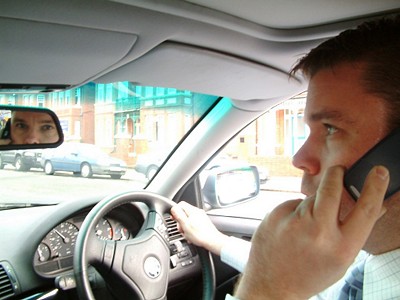Bluetooth, the ubiquitous technology that allows users to share data without the need for cables, was introduced to the world way back in 1999. A little over a year later the first mobile phone to feature the ground-breaking technology, the Ericsson T36, was introduced. Since then everything from laptops to sunglasses have been fitted with Bluetooth and as of today there are in excess of 16,000 companies worldwide signed up to use Bluetooth in their products.
Why is it then that so few cars have it fitted as standard?
Since 2006 it has been against the law in Ireland to use a hand-held mobile phone whilst driving. At the time Bluetooth was the preserve of high-end manufacturers such as Mercedes-Benz and BMW and not every phone came enabled with it. We all just stuck our phones into a cradle on the dashboard and enabled the speaker phone function. But in the intervening six years the world has gone smartphone mad; everyone has Bluetooth now and we use it with earpieces and wireless speakers, to communicate with our laptops/iPads and to share information with each other. It has become a part of daily life - shame then that it becomes redundant as soon as we get behind the wheel of a car.
Over the years Bluetooth itself has advanced; we are now on version 4.0 (I have no idea what it means either) and it is this change that manufacturers have used as an excuse in the past for not fitting their cars with Bluetooth from the factory. By the time the car reaches the customer it may already be obsolete. Codswallop!
While Bluetooth itself has advanced, the core technology (using short-wavelength radio transmissions in the ISM band from 2,400-2,480MHz to transmit data if you must ask) remains the same. Sure, we would all like to be able to stream music to a car radio to listen to while on the move and it is a mild annoyance when I enter a car that has Bluetooth for phone calls but not streaming, but that is nothing compared to the apoplectic frustration when you get into a car that does not have it at all.
You could possibly understand it if the car was a cheap, no frills supermini but most of the bare-bones cars I have driven recently at least have the ability to accept calls via Bluetooth. Instead it is usually the expensive, premium cars that are not fitted with it as standard - or at least the cars that we actually buy. Manufacturers will generally fit Bluetooth to the press cars and the fact that it is an optional extra is only uncovered when we go through the spec list. For example I recently drove a €52,000 saloon that had all the bells and whistles like satnav, leather sports seats, buttons that you can toggle depending on you driving mood (normal, fast and "Oh I'm sorry Garda I didn't realise I was going that fast"), but no Bluetooth. On a 52 grand car!
Recent murmurings from the powers that be in the EU is that active-city braking (the system that automatically stops your car if it detects an impending accident under 30km/h) is to join anti-lock brakes (ABS) and electronic stability control (ESC) on the compulsory list for all new cars sold in Europe. With our on-the go lifestyle and proliferation of mobile phones surely it is time for Bluetooth to join that list too - as much on safety as on convenience grounds.

